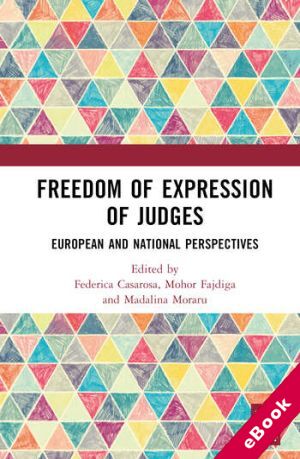
The device(s) you use to access the eBook content must be authorized with an Adobe ID before you download the product otherwise it will fail to register correctly.
For further information see https://www.wildy.com/ebook-formats
Once the order is confirmed an automated e-mail will be sent to you to allow you to download the eBook.
All eBooks are supplied firm sale and cannot be returned. If you believe there is a fault with your eBook then contact us on ebooks@wildy.com and we will help in resolving the issue. This does not affect your statutory rights.
This book addresses the impact of developments surrounding the freedom of expression of judges by building on the experience of judges themselves, legal practitioners and academics across Europe. Like everybody, judges enjoy freedom of expression. However, historically, there have been starker limitations to the free speech of judges compared to ordinary citizens, the rationale being to safeguard judicial independence, impartiality and public trust in the judiciary. Where exactly the boundary lies, is a highly complex question. The recent developments in Europe have rekindled the dilemma of guaranteeing freedom of expression to judges. The rule of law crisis has led many judges to speak out against the attacks of autocratic governments targeting judges and courts. The rapid expansion of the digital world has opened up new channels of communication, and the growing role of courts in society has expanded the reach of courts to practically any social issue, even the most polarised. This work critically analyses the recent jurisprudence of the Court of Justice of the EU and the European Court of Human Rights, its reception at the national level and the contribution of national judiciaries to the discussion pervading the European judicial space. It seeks to raise awareness that judicial speech is a multifaceted phenomenon shaped by complex legal and social considerations worth further exploration.
The book will be of interest to academics, researchers and policy-makers working in the areas of Human Rights Law, Constitutional Law and Politics and Comparative Law.